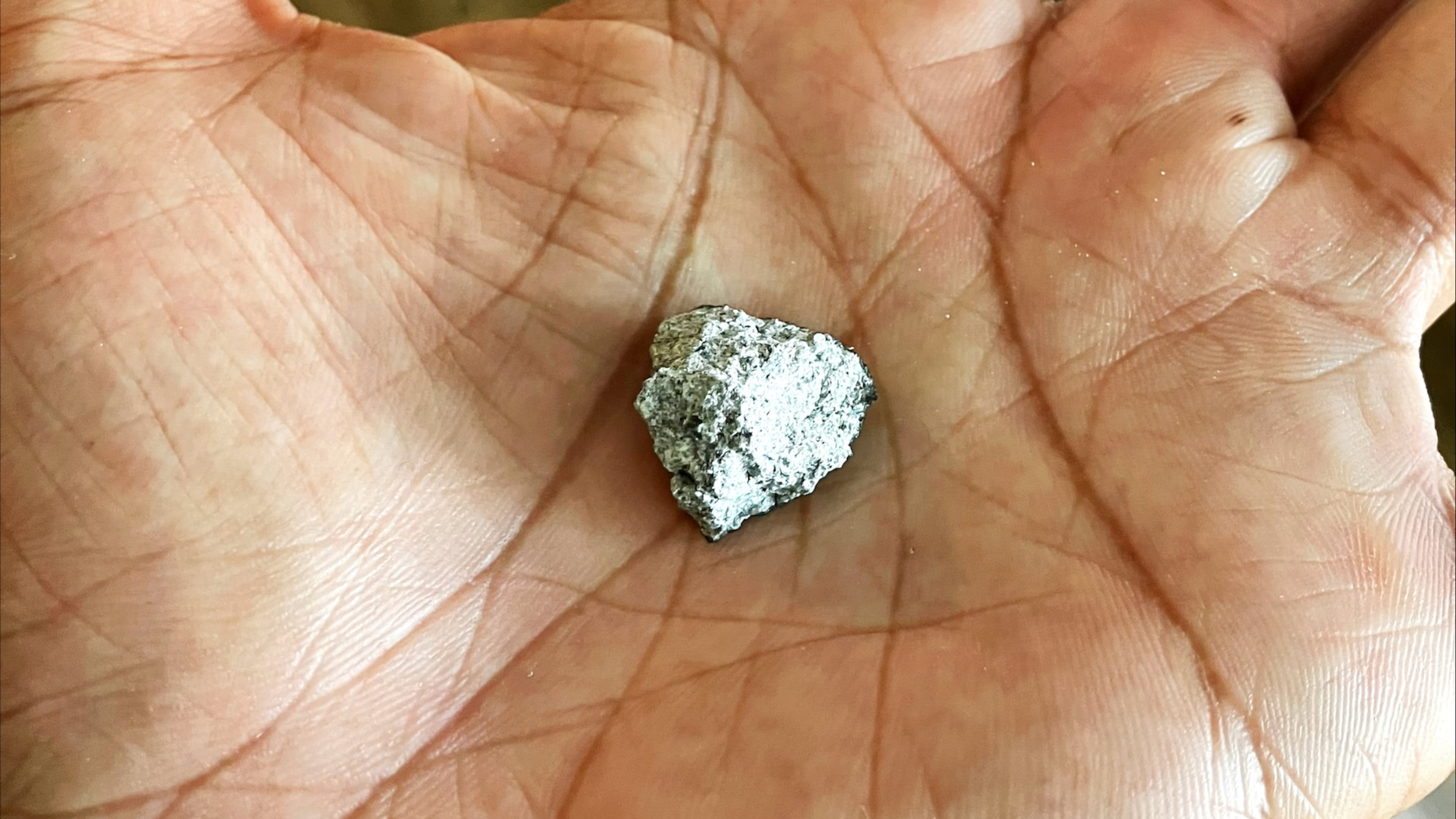Fireball falls, custody battle begins: The scramble for meteorite ownership

A Henry County man won a lottery of sorts when a space rock — seen for hundreds of miles around as a fireball hurtling through the sky — crashed through his roof.
The fireball plummeted to the floor, missing any people or possessions in the house about 30 miles south of Atlanta, and the man, not sure what else to do, called 911.
When Henry County Emergency Services got to the scene, it treated the meteorite like any other case: Workers put the “evidence,” chunks of space rock, in an evidence collection bag and whisked it away to headquarters. But the meteorite spent only one night in custody.
“The very next day, I just went ahead and hand delivered it back to him from the evidence bag that we had because it was his possession,” said Ryan Morrison, director of Henry County Emergency Management and Homeland Security.
Whether he liked it or not, legally, the meteorite belonged to the Henry County man whose property it had just so happened to crash land on.
In the days after the fireball streaked through the Georgia sky on June 26, hundreds descended on the state for a chance at collecting chunks of space rock. But it isn’t always just a game of finders keepers. Meteorites are a rare and valuable commodity.
Pieces of the Georgia fireball are sold for around $100/gram. And like any precious object, they come with rules for who gets them, who keeps them and what happens when science and collectors collide.
Technically speaking, the fireball in the sky was a meteor that broke into many pieces in the atmosphere as it fell. Once those pieces hit the ground, each one is called a meteorite.
If a meteorite lands on public land administered by the Bureau of Land Management, it technically belongs to the Smithsonian Institution as an object of scientific interest.
In a famous case from 1975, hunters found the “Old Woman Meteorite” in California and filed a mining claim to the space rock. The Smithsonian, also taking an interest in the rock — the second-largest meteorite ever found in the U.S. — also laid claim and eventually won possession of the meteorite, which is now displayed at the California Desert Information Center.
“For smaller finds or falls, similar to what we’re collecting over at McDonough, the Smithsonian typically is not interested,” Dr. Ed Albin, associate professor at American Public University System, who both hunts and scientifically studies meteorites, said. “It’s kind of finders keepers in those cases.”
In the U.S., if a meteorite lands on private property, it becomes the legal property of the land owner.
“It gets into a much more interesting situation where there are countries that actually consider any meteorite that is found a national treasure, and it is illegal for anyone but the government to retain possession,” said R. Scott Harris, a planetary geologist and visiting researcher at the University of Georgia.
When the Peruvian government invited Harris in 2007 to investigate a meteorite fall, he said, a meteorite hunter from the U.S. had gotten there first and Peruvian authorities chased the hunter across the Bolivian border and banned him from Peru.
Harris is currently working with the Henry County homeowner to examine and study the meteorite that crashed through the man’s roof. What the homeowner does with the rest of the meteorite that is not being donated to science is up to him. He declined to speak to The Atlanta Journal-Constitution about the incident.
Craig Zlimen, a well-known meteorite hunter who recently came to Georgia to hunt the fireball, depicted a different relationship to scientists than what Harris described, saying it was “symbiotic”: Scientists depend on meteorite hunters to give them samples and meteorite hunters depend on scientists to identify what they’ve found.
“People often describe it as the only situation where a commercial interest and the scientific interest really mesh,” he added.
The hunters work out who has to donate among themselves.
Among meteorite hunters, donation to science is guided by the “20/20 rule,” which states that if a hunter finds a meteorite and wants to classify it, they must donate either 20% of the total weight of the find or 20 grams.
“Meteor hunters, we’re a small community. We usually are chasing the same meteorites and doing stuff like that,” meteorite hunter Roberto Vargas said. “The first person who finds is usually, or the person who finds the most, is usually the person who donates.”
Vargas donated a portion of his finds to the Tellus Science Museum in Cartersville to be put on display.
Steven Dixey, a co-owner of The Local bar in Atlanta’s Poncey-Highland neighborhood and a meteorite hobbyist, made some of the first finds of the Georgia fireball and donated some to Arizona State University to be studied and classified.
Mike Hankey, operations manager of the American Meteor Society, said the piece of the Georgia fireball that crashed into the Henry County house clearly belongs to the homeowner. But, he added, meteorite ownership isn’t always simple.
“When you have that kind of money just falling out of the sky onto open land and stuff like that, it could create some property issues,” he said.

